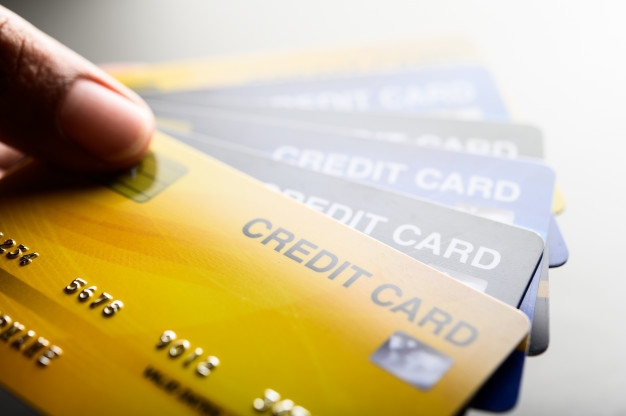More heat expected in e-wallet market
 |
| Illustration photo. Source: freepik.com |
Last week, BCCard – the biggest credit card issuer in South Korea – confirmed its buyout of Vietnamese point-of-sale (POS) terminal distributor Wirecard Vietnam as part of its Southeast Asian expansion strategy.
Wirecard Vietnam, previously a local franchise of Wirecard Singapore, secures the largest market share in terms of POS system, cooperating with more than 40 major banks and electronic payment companies.
BCCard, which is backed by South Korea’s largest telecommunications company KT Corporation as well as Woori Bank, said it would provide integrated terminals that can accommodate various payment approaches.
Choi Won-Seok, president of BCCard, highlighted, “We will strive to generate profits in various fields by diversifying our business structure by entering overseas markets.”
Vietnam’s e-payment market is predicted to reach a total value of $15 billion by the end of this year, and the sector is also expected to grow by 15 per cent annually until 2025. Vietnamese state-owned telecommunications provider MobiFone last week officially launched a MobiFonePay e-wallet – a move to tap into intermediary payment services and mobile money.
MobiFonePay aims to enhance non-cash payment transactions such as mobile top-ups, bill payments, internet TV, and more.
In its first stage of development, MobiFonePay will adopt a zero-fee policy for all payment transactions, transfers, and accumulated points for consumers. This is deemed a sufficient condition for MobiFone to join the race for mobile money implementation, which was approved by the local government in March.
Previously, both Viettel and VNPT had rolled out their e-wallet services. Viettel Pay announced its number of users exceeded nine million in February 2020, while the VNPT e-wallet boasted nearly 50,000 POS across the country last year.
The bill payment market in Vietnam has gained more popularity. Payoo has also deployed its services through a home-made platform to make bill payments more convenient, especially utilities such as electricity, water, television, and internet bills. Applications to track electricity numbers and bills are prevailing in the context of social distancing and increasing demand for electricity.
Most recently, AirPay e-wallet has been renamed ShopeePay to increase its brand awareness. ShopeePay is integrated into Shopee to facilitate transactions on the e-commerce platform. The ShopeePay e-wallet is also a standalone app offering many services. The move also reflects the efforts of Sea Ltd., the parent company of Shopee, to expand its presence in Vietnam.
Foody’s Now was one of the earliest players in Vietnam’s online food delivery market. However, Now is in fierce competition with heavyweight competitors like GrabFood, Go Food, and Beamin. If ShopeePay becomes more popular, it may help Now snag more users from other rivals.
Last month VNLIFE, the parent company of VNPAY, announced its target to secure $200 million in its next fundraising round taking place in the next few months. VNLIFE had approached Facebook for investment, but the two sides were not able to reach a mutual agreement, cited DealStreetAsia.
Dang Tuyet Dung, Visa country manager for Vietnam and Laos, believed that the pandemic has been a major disruptor for businesses and consumers alike. “Banks, fintech companies, and merchants are looking at a transformed landscape where success lies in offering consumers convenient, frictionless, and safe payment methods, while educating non-users of the potential gains in going digital,” Dung said.
According to a Visa Consumer Payment Attitudes study, Vietnamese expect the country’s transition to a cashless society to happen as soon as 2030, with the majority (84 per cent of respondents) already having attempted to go digital and get by without using cash.
What the stars mean:
★ Poor ★ ★ Promising ★★★ Good ★★★★ Very good ★★★★★ Exceptional
Related Contents
Latest News
More News
- Private capital funds as cornerstone of IFC plans (February 20, 2026 | 14:38)
- Priorities for building credibility and momentum within Vietnamese IFCs (February 20, 2026 | 14:29)
- How Hong Kong can bridge critical financial centre gaps (February 20, 2026 | 14:22)
- All global experiences useful for Vietnam’s international financial hub (February 20, 2026 | 14:16)
- Raised ties reaffirm strategic trust (February 20, 2026 | 14:06)
- Sustained growth can translate into income gains (February 19, 2026 | 18:55)
- The vision to maintain a stable monetary policy (February 19, 2026 | 08:50)
- Banking sector faces data governance hurdles in AI transition (February 19, 2026 | 08:00)
- AI leading to shift in banking roles (February 18, 2026 | 19:54)
- Digital banking enters season of transformation (February 16, 2026 | 09:00)

 Tag:
Tag:




















 Mobile Version
Mobile Version